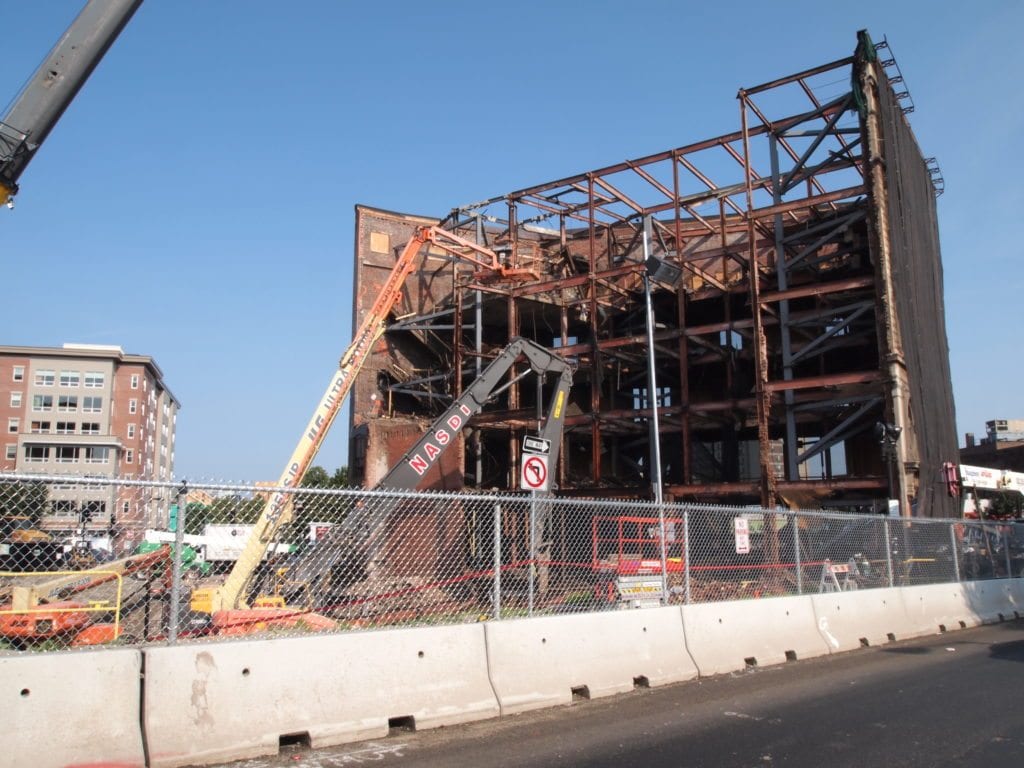
A Boston Superior Court ruled recently that Portuguese-owned construction companies receive an illegal and unfair advantage by participating in a state affirmative action program for public construction projects.
The lawsuit was filed in 2016 by Hopkinton business owner Janet Butler, who sued the state after being passed up for projects that were awarded to Portuguese-owned businesses.
On the web
Disparity Study: http://bit.ly/2u2JB6n
Judge Douglas Wilkins found that Reginald Nunnally, the former executive director of the Supplier Diversity Office in the Executive Office for Administration and Finance, received pressure from the governor’s office and state Sen. Michael Rodrigues to keep Portuguese companies in the minority-owned business program.
Wilkins also ruled that a former director of the Supplier Diversity Office in 2007 “arbitrarily” categorized Portuguese businesses as minority-owned firms without investigation to determine whether the companies have been discriminated against.
As a result of the minority-owned designation, Portuguese companies were awarded $15.6 million in state construction projects in 2015, or about 61 percent of funds that went to minority business enterprises, or MBEs, that fiscal year, according to court documents.
Disparity data
A disparity study commissioned last year by Governor Charlie Baker, conducted by NERA Economic Consulting, was cited as evidence that Portuguese companies have been discriminated against when applying for public contracts.
The study, released in December 2017, covers Division of Capital Asset Management and Maintenance (DCAMM) construction and design contracts active during fiscal years 2010-2015. The NERA report states that “minorities, women and Portuguese earn substantially and significantly less from their labor than do their similarly situated nonminority male counterparts — in the nation as a whole and in the Massachusetts Market Area.”
However, disparity rates in business formation for Portuguese entrepreneurs in the construction and design industry are lower compared to other minority business owners in the same industry.
According to the study, the Portuguese business formation rate — the rate of probability that an entrepreneur forms or starts a business — is 6.4 percentage points lower than what would be expected in a race and gender-neutral market area, while African Americans and non-minority women showed business formation rates 14.7 and 14.5 percentage points lower, respectively, than what would be expected in a race and gender-neutral market area.
When reached for comment, the governor’s press secretary, Brendan Moss, emailed the Banner a statement: “The administration is carefully reviewing the court ruling and assessing our legal options.”
John B. Cruz III, president of Cruz Construction, scoffs at the notion that Portuguese firms have suffered discrimination in Massachusetts.
“We just got independence from Portugal in 1975,” said Cruz, who is Cape Verdean. “You might as well put Spanish people from the Iberian peninsula, or Italians or French in that category.”
Cruz noted that Portuguese-owned firms are among the largest and most powerful in the state. Costa Brothers is a major player in masonry work in Massachusetts, and S&F Concrete is one of the largest concrete companies in New England.
The participation of large Portuguese-owned construction firms in major projects has skewed the percentages of minority participation on state and local government-funded projects, Cruz said, often making it appear as though contractors have met or exceeded their minority participation goals.
“If you took Portuguese contractors out of some significant local jobs, like the Kroc Center, the [minority firm participation] percentage drops to less than 5 percent. This affected every minority firm in the state that was bidding on construction work,” said Cruz.
Janet Butler, who filed the lawsuit challenging Portuguese firms’ classification as minority business enterprises, owns a 300-employee Hopkinton firm, Federal Concrete, a Women Owned Business (WBE) certified company, which specializes in cast-in-place concrete.






